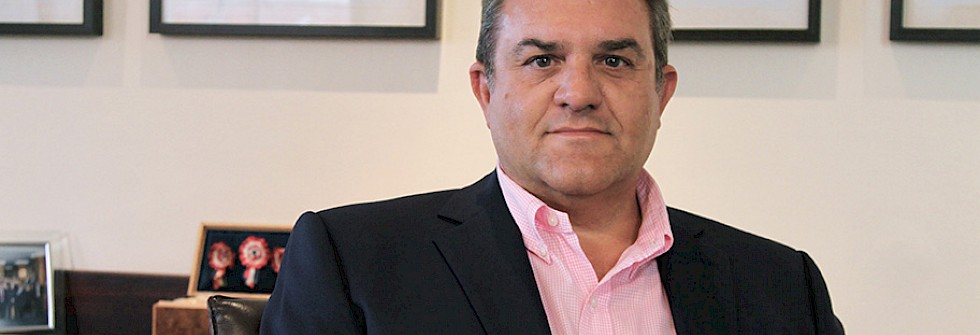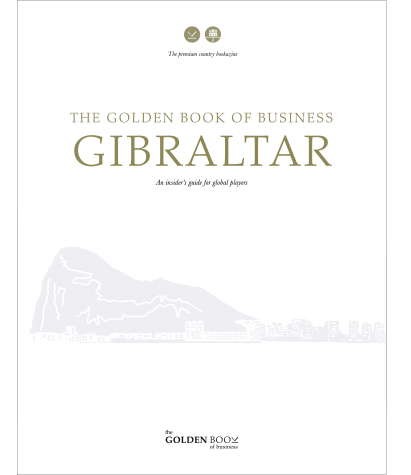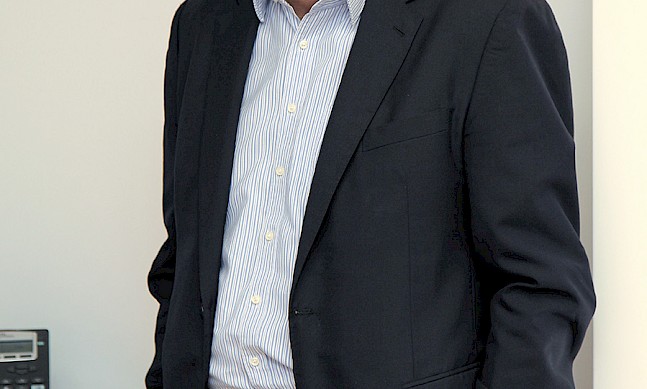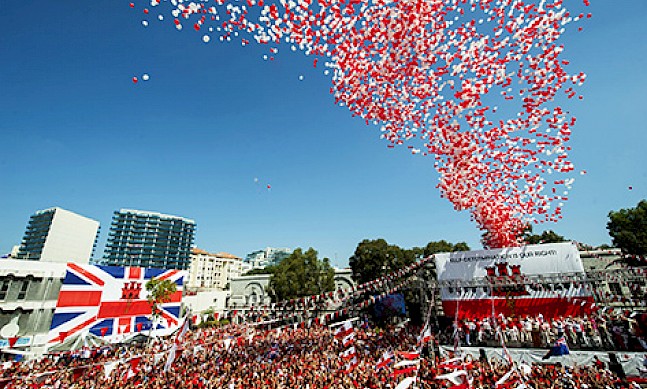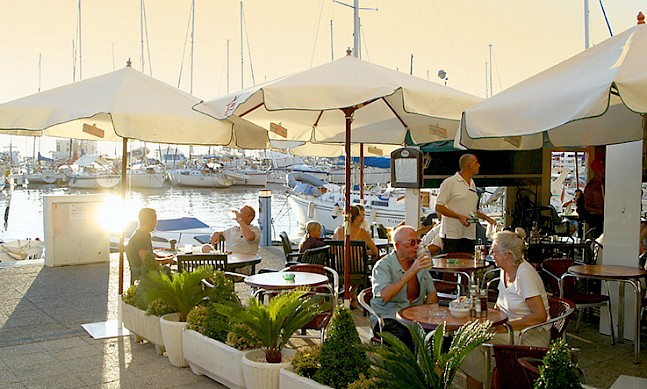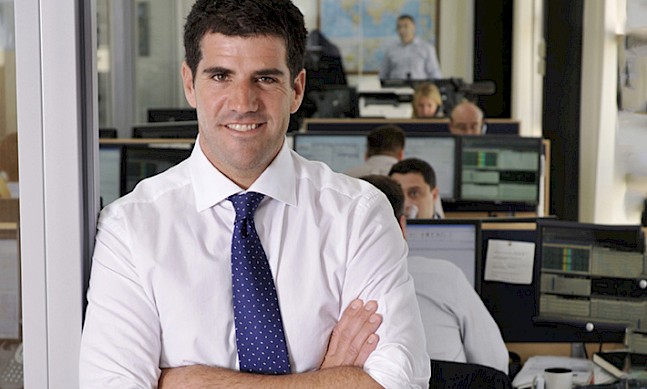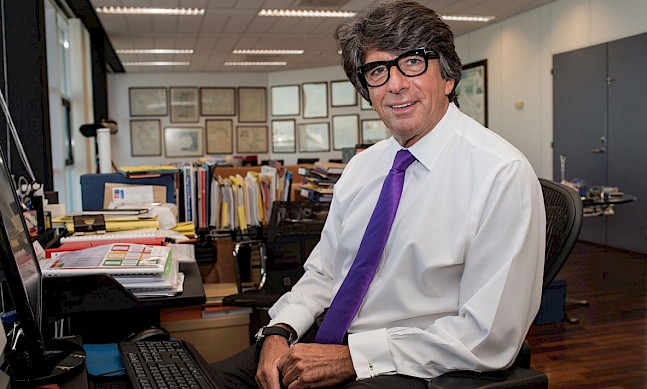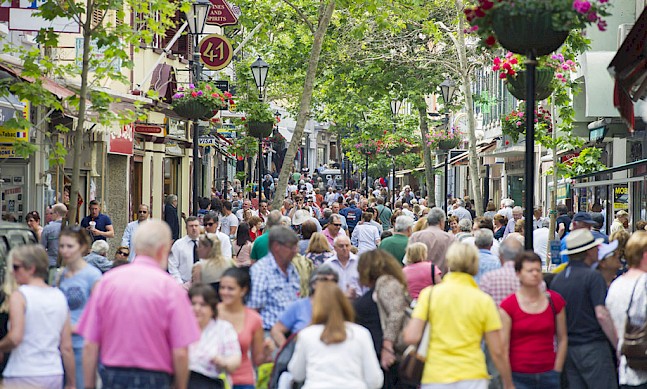With over 200 years of history, MH Bland’s development has mirrored that of Gibraltar’s: from small shipping agency, it has evolved and grown to become a force to be reckoned with in the maritime and tourism sector. Johnnie Gaggero, the company’s chairman, spoke to The Report Company about the challenges and opportunities he sees within the tourism sector in Gibraltar, and the work his company does in bringing visitors to the Rock.
The Report Company: What is the history of MH Bland?
Johnnie Gaggero: The company was formed in 1810, just a few years after the Battle of Trafalgar, when Marcus Henry Bland from Liverpool saw the effects of the Britain’s victory at Trafalgar and what it would do, and realised that Gibraltar was the first friendly port leaving the UK and that this would be important, so he set up a shipping agency here.
There were four generations of Bland, and then John Bland who was the last one, didn’t have any heirs, so he sold the company to his clerk, who was Joseph Gaggero. He bought the company with his brother, and the company has then evolved over the years. From a shipping agency, it went into salvage, into ship owning, into towage, into airlines, we ran the ferry across the straits of Gibraltar for many years, and the airline across to Tangier and then developed into the UK.
TRC: How has the tourism sector developed in Gibraltar?
JG: Gibraltar was first and foremost a military base, and up until the reopening of the frontier in 1985, a very substantial part of the land area was controlled by the ministry of defence. Up until the 1960s, the Upper Rock was out of bounds. We had to get special permission from the ministry of defence to build the cable car. When the frontier reopened in 1985, we went from being an economy which was primarily dependent on MoD spending to completely transforming the economy. Tourism has played its part.
We have 160 cruise ships per year coming into the port. Our company handles most of the shore excursions for cruise line passengers, and the nature reserve handles about 800,000 passengers annually. We handled 256,000 passengers up and down the cable car last year, and we handled 52,000 passengers on tours from cruise liners.
TRC: What are the main attractions that you seek to promote?
JG: There is the nature reserve, which is clearly the main attraction, and then there are the ancillary sites such as Europa Point. We have reached saturation point on the Upper Rock, because the more successful we are at bringing in passengers, the more congestion there is, and we detract from the product that we want to sell by pushing more passengers up there.
The problem is not so much the number of people, it’s the way that we transport them, and there is in the pipeline a proposal to change the way we move passengers and tourists around the Rock, by using a hop-on, hop-off service.
People like to make their own itinerary, so if you have this service, you can take people to new sites that are not open to the public today such as the many miles of tunnels inside the rock, where Eisenhower’s headquarters can be found. We also have the northern defences, which is a network of tunnels and gun emplacements which provided a field of fire for anyone approaching the northern side of the rock with an army. The Great Siege, for example, was fought from there. It needs to be opened up, but you cannot do that unless you sort out the transport issue.
We have improved the tourist product in Gibraltar, we have cleaned things up a bit, but fundamentally it’s still the Rock tour, the apes, the caves and Europa Point. But we have so much more to see. Whereas Disneyland has to create these attractions out of concrete, we’ve got it all here and it’s real and been here for hundreds of years, it’s just that no one sees it. There are more miles of tunnels inside the Rock than roads outside the Rock.
“Geopolitically, this area can play a strategic role in creating the sort of ties that will normalise relations with North Africa and create jobs, wealth and interdependence”Tweet This
TRC: What would be the profile of tourists that Gibraltar should be aiming for?
JG: Up until now, Gibraltar very much caters for the lower income brackets, the day-trippers and so on, although we have a mix of tourists from cruise liners that call in the port. We don’t have high-end shops, so if Gibraltar is going to aspire to a high-end market, we’ve got to have the shops, the restaurants and everything else that goes with it. That said, Gibraltar I think has a very bright future as a place for high-net-worth individuals to have some sort of base.
TRC: What does Gibraltar have to offer the business community?
JG: The language and the legal system is a fundamental part of what we offer, as well as our location between Spain and the Maghreb. There is a lot going on in terms of ISIS and terrorism and so on. The best way of protecting our security is to create business ties with North Africa. Geopolitically, this area can play a strategic role in creating the sort of ties that will normalise relations with North Africa and create jobs, wealth and interdependence. That is a key part of what we and Spain and Europe can do together to help in today’s world. I cannot stress that enough.
TRC: Given the political impasse in Spain, what hopes are there for building cross-border projects?
JG: We are a crossroads for world trade, we are a gateway between the Atlantic and the Mediterranean, and we are on the doorstep of the Maghreb and Europe. I see the ports of Gibraltar and Algeciras working together rather than competing against each other, because Algeciras has a lot of strength in the container market and other services, whereas we in Gibraltar have a lot of strength in the cruise liner and bunker markets. The airport in Gibraltar is a huge asset for this area. I don’t see it as an airport to rival Malaga; I see the role of Gibraltar airport as a cargo airport, to complement the role of Gibraltar port and Algeciras.
Gibraltar can play a role in the same way that Dubai has invested hugely in the sea-air concept, whereas cargo comes in by sea and leaves by air. I also think there is a role to play in creating free zones and certain industrial zones in Spain. Clearly, we don’t have the space for that, but Spain does.
Spain has 40 percent unemployment in this area. If the Spanish government were to focus more on creating jobs rather than beating the drum over something that happened 300 years ago, then we could create jobs together.
TRC: What marine services do you offer and where do you see demand heading?
JG: We currently operate in Gibraltar, Algeciras, Ceuta, Tenerife, and in Las Palmas. In Morocco, we are in Jorf Lasfar, and in Tangier Med and Tangier Ville. We handled about 1,500 ships in Gibraltar last year, and in total, throughout all our offices, we handle about 2,600 ships. That is a lot of ships. We as a company bring a lot of foreign exchange to Gibraltar and we are providing jobs for locals. This is also important. We are very much a locally based company, we provide a local environment. Obviously, we have Moroccan and Spanish employees, but primarily we have a large proportion of locally based employees wherever we operate.
TRC: Why are you expanding into ports in Spain?
JG: We found that we couldn’t simply be a Gibraltar operator. Particularly with our shipping agency, a ship will bunker where bunkers are cheapest on the day, whether it is Gibraltar, whether it is Algeciras, sometimes it is Ceuta. If we just act on one port, we are less attractive. And similarly, we as a company operate now throughout Iberia and North Africa for shore excursions. We did two turnarounds for P&O last year in Malaga. We are handling over 60 ships in Cadiz this year for P&O.
TRC: What needs to be done to boost visitor numbers to Gibraltar and diversify the tourism offering?
JG: There is a very strong relationship between airlines and hotels. You cannot create new hotels in Gibraltar and not have airlines, and the capacity. And at the same time, you cannot set up a new air route without the hotel capacity. We need to develop the tourism product, and the way that we transport people around the Rock. The fact that we are coming to the market late means that we can apply the latest technology. We can show what we have in a very innovative and modern way. We won’t cover it in concrete, we can do it properly, and we can do it better than some sites that perhaps opened up 15 years ago because we can use the latest technology to be able to do it in a better way.
“We as a company bring a lot of foreign exchange to Gibraltar and we are providing jobs for locals”Tweet This


